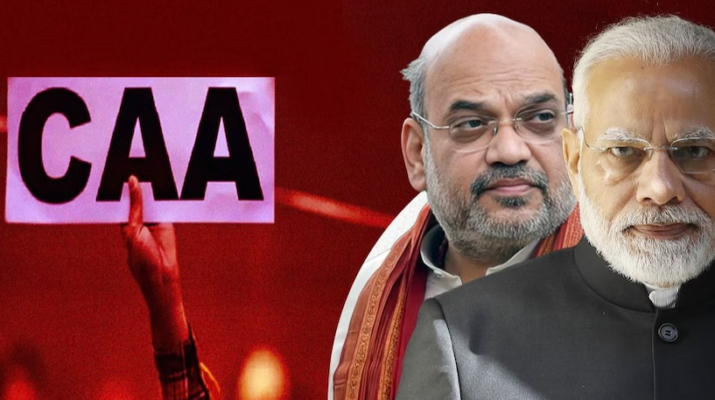Understanding the Citizenship Amendment Act (CAA)
The Citizenship Amendment Act (CAA) is a law passed in India in December 2019 that provides a path to Indian citizenship for religious minorities from neighboring countries such as Afghanistan, Bangladesh, and Pakistan, but excludes Muslims.
The law giving citizenship to non-Muslim refugees from Pakistan, Afghanistan and Bangladesh came into force in the entire country from today. On December 12, 2019, the President approved the Citizenship Amendment Act.
Rules were to be made and implemented within 6 months, but after 4 years and 8 extensions, the government issued its notification on March 11. Many Indian Muslims are concerned about the CAA because they see it as discriminatory, as it specifically excludes Muslims from seeking citizenship based on their religion. This has raised fears among Indian Muslims about being marginalized and discriminated against in their own country.
Concerns Among Indian Muslims
Many Indian Muslims feel uneasy about the CAA, perceiving it as a form of religious discrimination.
Perception: Viewed as discriminatory against Muslims
Concerns: Fear of marginalization and discrimination in India
Reaction: Widespread protests and legal challenges
The Citizenship Amendment Act (CAA) amends the Citizenship Act of 1955 to grant Indian citizenship to Hindus, Sikhs, Buddhists, Jains, Parsis, and Christians who arrived in India from Afghanistan, Bangladesh, or Pakistan before December 31, 2014, due to religious persecution. The Act excludes Muslims from these neighboring countries.
Key points regarding the CAA:
Eligibility Criteria: Non-Muslim minorities from Afghanistan, Bangladesh, and Pakistan who arrived in India before December 31, 2014, due to religious persecution are eligible for citizenship.
Excluded Groups: Muslims from these countries are not covered under the Act.
Citizenship Process: Eligible individuals can apply for citizenship through prescribed procedures, including documentation and verification processes.
Legal Implications: The Act has faced legal challenges in Indian courts, with concerns raised about its constitutionality and potential discriminatory nature.




